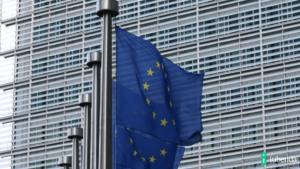The European Commission’s consumer protection office is set to launch a voluntary initiative to move away from repetitive cookie banners, potentially leading to a legislative proposal.

The cookie pledge will be announced at the European Consumer Summit and will involve stakeholders such as consumer groups, publishers, advertisers, and technology companies in a series of roundtables. The initiative is driven by the European Commissioner for Justice and Consumers, Didier Reynders, who aims to address the online users’ growing ‘cookie fatigue’ and their lack of understanding about the implications of their choices.
The voluntary pledge is set to clash with the digital policy branch of the Commission, which proposed the ePrivacy Regulation in 2017 to update the current electronic communications regime. However, discussions over the ePrivacy Regulation were hijacked by a coalition of member states and the regulation is likely to be withdrawn if no agreement is reached by the end of this European mandate.
One of the main options for implementing the cookie pledge is to represent a measure of the ePrivacy Regulation that would allow users to centralize their preferences via web browsers, reducing the need for cookie banners. However, this approach has been criticized for giving considerable power to web browser providers and potentially leading to market concentration. Another idea is to provide a label for publishers that commit not to track users across different websites, but this may also favor larger publishers who can harvest more data.
The EU consumer department is consulting with the Commission’s divisions responsible for digital policy and competition on these matters. Although the cookie pledge is voluntary, it may be the prelude to a hard law in the next Commission’s term. A regulatory approach would ensure a level playing field for signatories to the voluntary agreement, who should not be disadvantaged compared to competitors.
The EU Commission department is also working on a public consultation to assess whether EU consumer law is fit for a digitalized world, which will likely lead to a legislative proposal in the next mandate.
